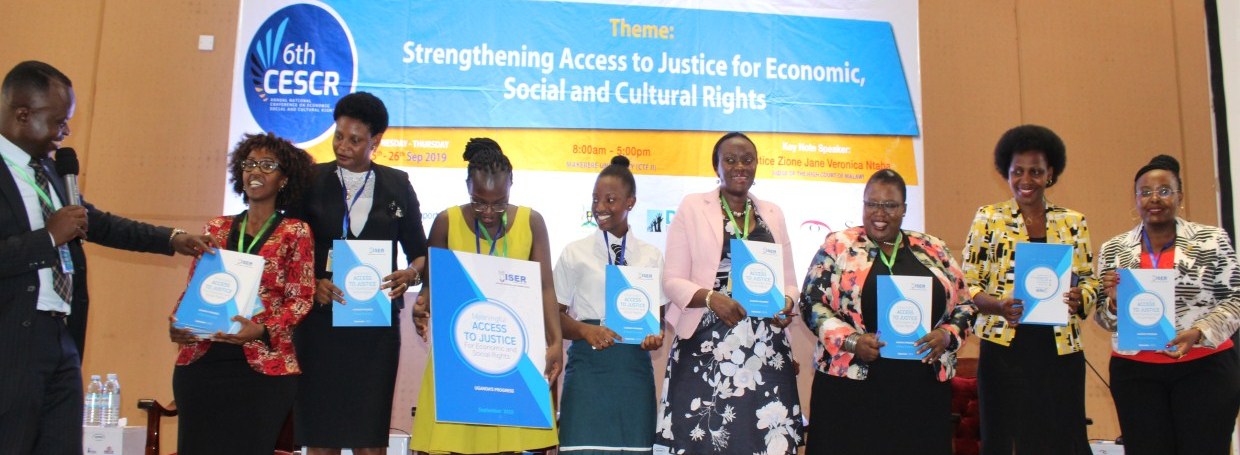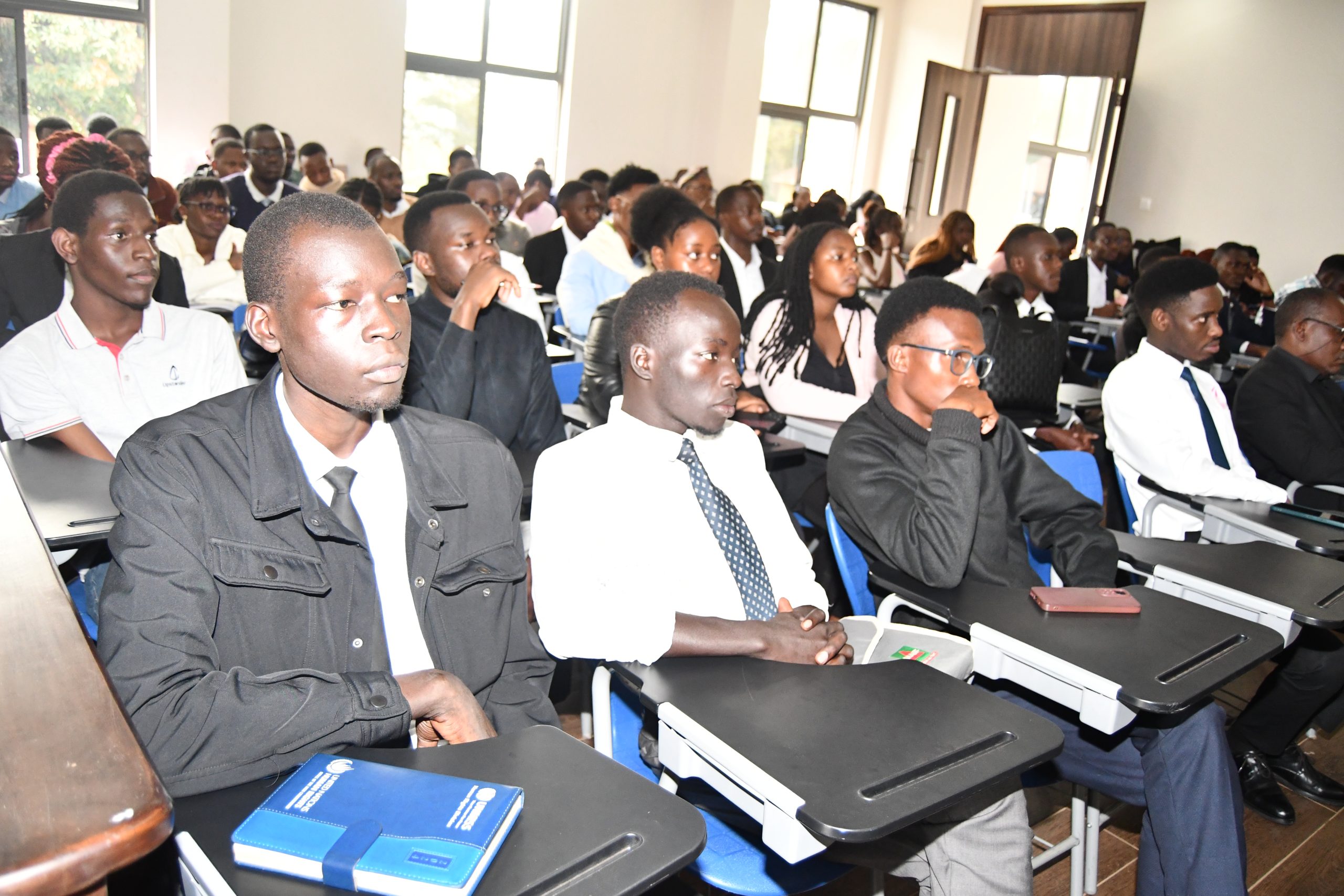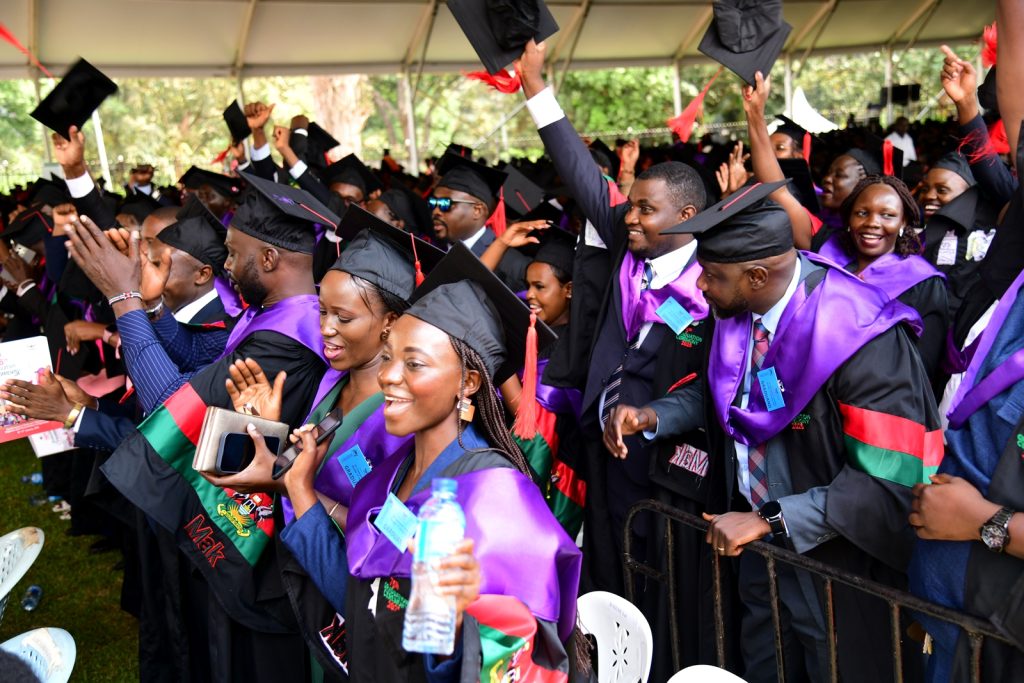The 6th ESCR Calls For Policy Reforms
The 6th Annual Economic, Social and Cultural Rights Conference held hosted by the Public Interest Law Clinic, School of Law successfully ended with a call for Law and policy reform in respect to economic, social and cultural rights.
The Conference that brought together agencies passionate about the realization of the otherwise neglected rights made a number of proposals all aimed at redressing the imbalances in society arising out of the neglect of these rights.
It was observed that if the agenda of economic, social and cultural rights was to be pushed to a higher level, the Judiciary ought to free itself from the constraints of the bench and the letter of the law to meet the aspirations of the people, and that it should be capacitated to ensure respectand implementation of the decisions made in respect to social and cultural rights that have for long time been regarded unjustifiable.

The two day conference was held at Central Teaching Facility II on 24th and 25th September 2019 under the theme, Strengthening Access to Justice for Economic, Social and Cultural rights.
The deliberations proposed that legal aid service provision should prioritize issues of economic, Social and Cultural Rights and that human, social and capital capacity should be built for the quasi-judicial bodies to deliver on their social, economic, and cultural rights mandate.
Government was also tasked to heighten its monitoring mechanism on economic, social and curatorial rights in respect to externalization of labor.
The Key Note Speaker at the conferencewas Justice Zion Jane Veronica Ntaba from Malawi. It also attracted participation of Judges, Government agencies, Civil Society, the Academia among others. The meeting sought to examine the relationship between access to justice and ESCRs and the international standards that govern this area of human rights law.

It set out to take stock of the access to justice mechanisms available for victims of ESCRs violations and abuses and examine the extent to which justice needs of victims of ESCRs violations and abuses have been addressed through the available mechanisms.
To identify and discuss best practices for the ensuring that victims of ESCRs violations and abuses access justice; and ensure inclusion of ESCRs in the access to justice discourse at the national, regional and international levels.
The Vice Chancellor Professor Barnabas Nawangwe said Makerere University was doing everything possible to revive debate in order to shape the leaders in the region. He noted with gratitude that the School of Law was undertaking research in the otherwise neglected rights. ‘I have never seen people taking Government to Court for being poor, these are difficult rights to deal with’, he noted.

Nawangwe said it was through such discussions that the University was getting enabled to write and publish research papers and literature for use by University students to enable them practice law with good knowledge of the country.
While giving a background to the conference, the Principal School of Law and Coordinator Public Interest Law Clinic, Dr. Christopher Mbazira said there was need to bring together agencies doing commendable work in ESCR although a lot of attention given to Civil and Political rights. He said the conference was forum to bring onto the national agenda issues of Economic, social and Cultural Rights, which he said, were important for poverty eradication.

He highlighted the subjects of discussion and themes of the previous conferences that began in 2014 namely, ESCR as Justiciable. This was followed by the Vulnerability of various groups, women, children and others in accessing ESCR, thereafter, the conference focused on Business and Human Rights, which direct foreign investment is undermining, followed by Local Governance and Sustainable Development.
Dr. Mbazira said the academic discourse in the 6th Conference focused on the subject of Access to Justice and the mechanisms for the protection of the victims following a realization of the challenges people face in accessing justice and legal services due to ignorance of the available avenues among others.
He commended the partners that pulled resources and these included the Public Interest Law Clinic, (PILAC), and Initiative for Social Economic Rights (ISER), Strengthening Human Rights and Research in Africa (SHUREA) from School of Law, Equal opportunities Commission (EOC), Uganda Human Rights Commission (UHRC), The Legal Aid Service Provider’s Network (LASPNET), FIDA-U, Uganda Consortium on Cooperate Accountability (UCCA), the Network of Public Interest Lawyers (NETPIL) among others.



